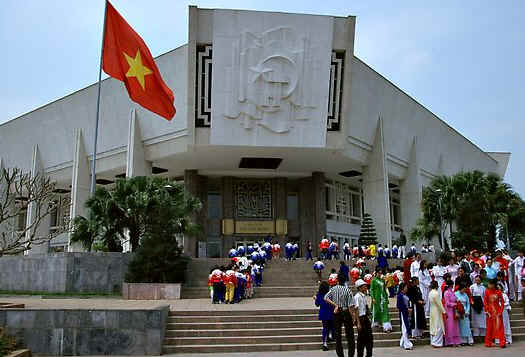Vietnam seeks more construction money despite inflation fight
 Hanoi - Vietnam's Construction Ministry confirmed Wednesday that it had requested permission to compensate contractors for rising steel and cement prices, despite a prime ministerial directive in late March ordering government bodies to freeze prices and hold down spending in order to control the country's rising inflation rate.
Hanoi - Vietnam's Construction Ministry confirmed Wednesday that it had requested permission to compensate contractors for rising steel and cement prices, despite a prime ministerial directive in late March ordering government bodies to freeze prices and hold down spending in order to control the country's rising inflation rate.
"The Ministry of Construction has asked the government to raise the prices for contractors, because now the prices of building materials have gone up too high compared with the time when the construction contracts were signed," said Thai Duy Sam, director of the ministry's Building Material Institute.
"Otherwise, the contractors cannot continue their work and the construction of many important projects will come to a halt."
On March 28, Prime Minister Nguyen Tan Dung froze the prices charged by state-owned manufacturers of ten key commodities, including steel and cement, until June, as part of a raft of measures taken to slow inflation, which reached 19 per cent year-on-year in March. Dung also directed government agencies and state-owned enterprises to reduce unnecessary spending.
Construction Ministry officials denied a report in Wednesday's Vietnamese press that the ministry had also asked the government to unfreeze prices on building materials.
"How could we do that in the middle of the government's efforts to contain inflation?" said Deputy Construction Minister Nguyen Van Lien. "We are following the prime minister's instruction to freeze the prices of key commodities."
Construction industry executives say the price controls place a great burden on contractors, who submitted bids when steel and cement were much cheaper.
"It's got to the level where they can't complete their projects," said Alan Young, managing director of the Australian-Vietnamese company Ausnam, which supplies steel roofing. "They contracted based on a certain steel price, and it's nearly doubled. So they're struggling to make ends meet. We're seeing sales start to slow this month."
Jonathan Pincus, head economist at the United Nations Development Program's Hanoi office, said price controls were unlikely to brake inflation in the long run, and that restraining government spending was more important.
"It's very difficult to slow down inflation just by moral suasion or by administrative means," Pincus said. "Businesses have a choice of passing on costs or not producing, but I don't think they have the choice of suffering huge losses for a long period of time."
Pincus said the government would have to slash its fiscal deficit "as a matter of some urgency" in order for its recent efforts to reduce the country's money supply to be effective at reining in inflation.
Vietnam's inflation rate has climbed dramatically since early 2007 as a result of strong economic growth, an influx of foreign investment, and the government's policy of holding the Vietnamese Dong's exchange rate stable against the falling US dollar.
Measures by the central bank to stabilize inflation by restricting credit and limiting the money supply have not yet been effective. (dpa)